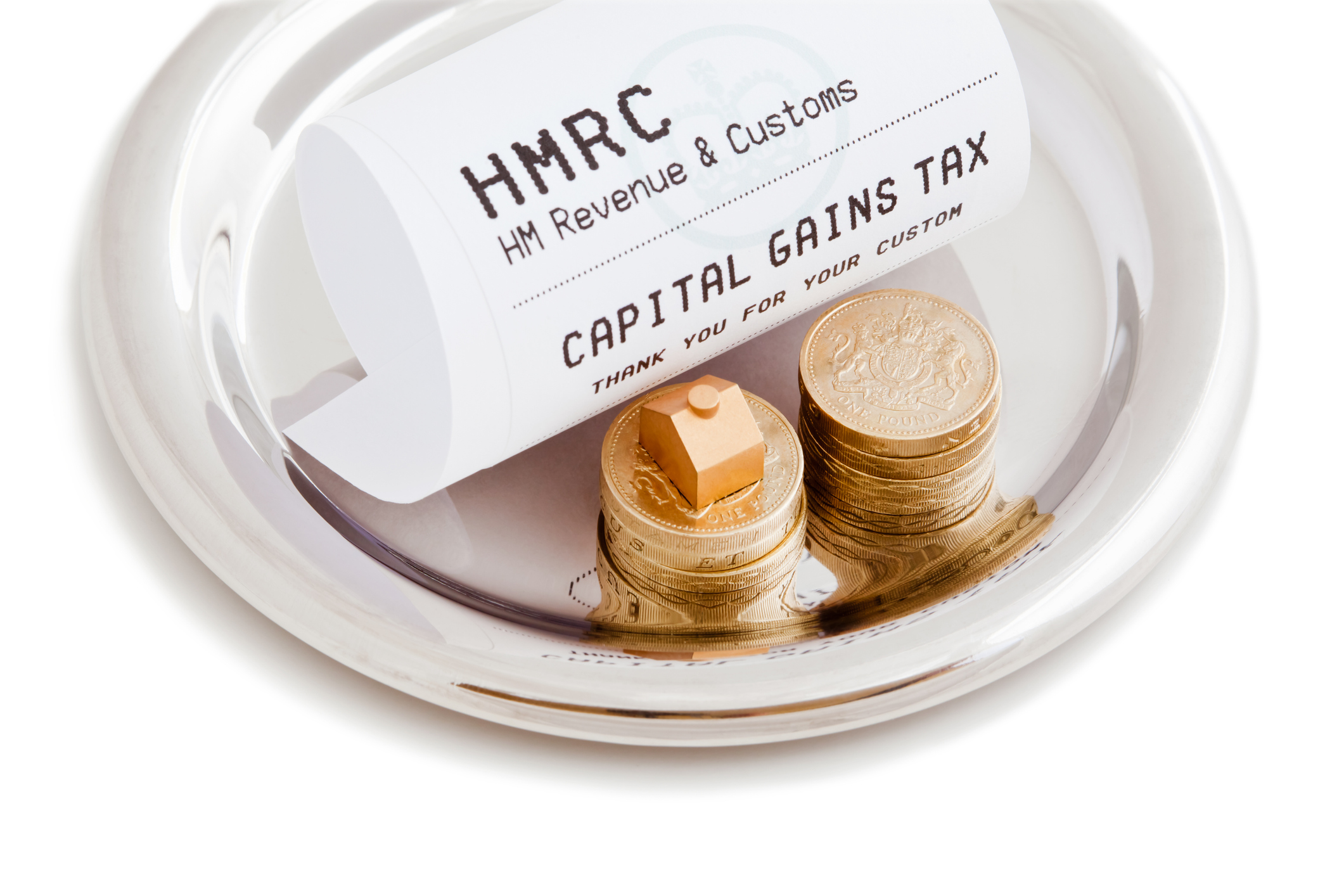
A recent review of Capital Gains Tax suggests changes that could rake in £14 billion in additional revenue for the Treasury. We look at the implications for you.
Chancellor Rishi Sunak has earned lots of praise for his wide-ranging and unprecedented measures to help the UK combat the damaging effects of the coronavirus lockdowns. But already he is looking at ways to pay for them. One recent review of Capital Gains Tax (CGT) has recommended cutting the annual CGT allowance, and changing the rates at which CGT is taxed – moves which could earn billions of pounds for the Treasury, but could result in headaches and higher taxes for many of us.
What is CGT?
CGT is the tax people are expected to pay on the profit they make when they sell or dispose of an asset. The tax is calculated on the gain that is made rather than the total amount received. For CGT purposes, ‘chargeable’ assets will include property that is not your main home, shares that are not held in an ISA, and most personal possessions valued at more than £6,000 (with the exception of cars).
What is the annual CGT allowance?
Everyone is entitled to an annual CGT allowance of £12,300. This means that you will only have to pay CGT if the gains you have made on your assets are above this amount. So, if you sold shares at a profit of £15,000 this year, you would only pay CGT on £2,700 (the amount over the annual allowance).
What is the CGT rate?
According to the Treasury, some 265,000 individuals in the UK paid a combined total of £8.3 billion in CGT in the 2017/2018 tax year (the latest available figures). By comparison, in the same tax year, more than 31.2 million taxpayers paid a combined £180 billion in income tax. Higher rate taxpayers are expected to pay CGT at 28% on gains made from residential property, and at 20% on gains from other chargeable assets. Basic rate taxpayers usually pay CGT at 18% on residential property gains, and at 10% on other assets. But that could all be set to change.
The CGT review
In early November, the Office of Tax Simplification (OTS) published its eagerly anticipated report into CGT, commissioned by Rishi Sunak back in July. The report suggests that current CGT rules are “counter-intuitive” and have created “odd incentives” in several areas. It noted that the annual exemption could also “distort investment decisions”, pointing to 2017-18 tax year data showing that 50,000 people reported net gains just below the annual threshold.
Among the report’s findings, it suggested that the government should consider reducing the £12,300 annual CGT allowance, reducing it to between £2,000 and £4,000. It also suggested aligning CGT rates more closely with Income Tax, in a move that could raise up to £14 billion for the Exchequer. For higher rate taxpayers, that could mean the CGT tax rate increasing from 20% to something closer to 45%.
Who should be worried about changing the CGT rules?
The OTS proposals would most likely affect individuals with second homes, as well as those with large share portfolios sitting outside of tax-efficient ISAs. The proposals are also likely to cause bigger problems for owners of small companies who hold large sums of cash within their business with the aim of using the cash as a pension when they retire. The OTS also suggested that business owners should pay Income Tax rates on share-based remuneration and earnings retained in their companies. Other recommendations included changing Entrepreneurs’ Relief — recently renamed ‘Business Asset Disposal Relief’ — with an allowance focused on business owners approaching retirement.
How concerned should you be?
Firstly, there is no guarantee that these OTS proposals will end up as legislation. Yes, Rishi Sunak is keen to raise money to fill the fiscal hole left by the Covid-19 crisis. But any far-reaching CGT reforms are likely to prove unpopular with voters, and in particular those entrepreneurs and small business owners that do so much for the UK economy – and have faced such a difficult 2020. For now, the Treasury is keeping its cards close to its chest, saying only that “The government’s priority right now is supporting jobs and the economy”.
Secondly, it is very difficult to make future tax revenue calculations based on a ‘discretionary’ tax such as CGT. If the annual allowance is set too low, or CGT rates are too high, it may encourage individuals to hold onto their assets instead of selling them. If fewer people end up paying CGT, then the Treasury may find their hoped-for additional tax revenue predictions were over-optimistic, and that the CGT reforms have discouraged taxpayers from selling their assets and “distorted investment decisions” even further.
What actions should I be thinking about?
It is hard to predict what the Chancellor will ultimately decide, but with a coronavirus vaccine due for widespread distribution in 2021, it is fair to assume that the government’s attention will be turning from supporting jobs and the economy towards attempting to pay down some of the debt that has been run up this year. So, we feel now may well be a sensible time to undertake a review of your existing investment portfolios, to consider your CGT position and ensure your investments are as tax-efficient as possible.
In particular, this is a good time to focus on investments that have been held for some time, which may carry substantial gains. Whilst CGT is only one consideration when deciding on appropriate changes to an investment portfolio, the result of the OTS review may well mean that now is an ideal opportunity to consider existing investment portfolios in light of potential changes to come.
If you are interested in discussing your investments or tax planning with one of our experienced financial planners at FAS, please get in touch here.
This content is for information purposes only. It does not constitute investment advice or financial advice.







